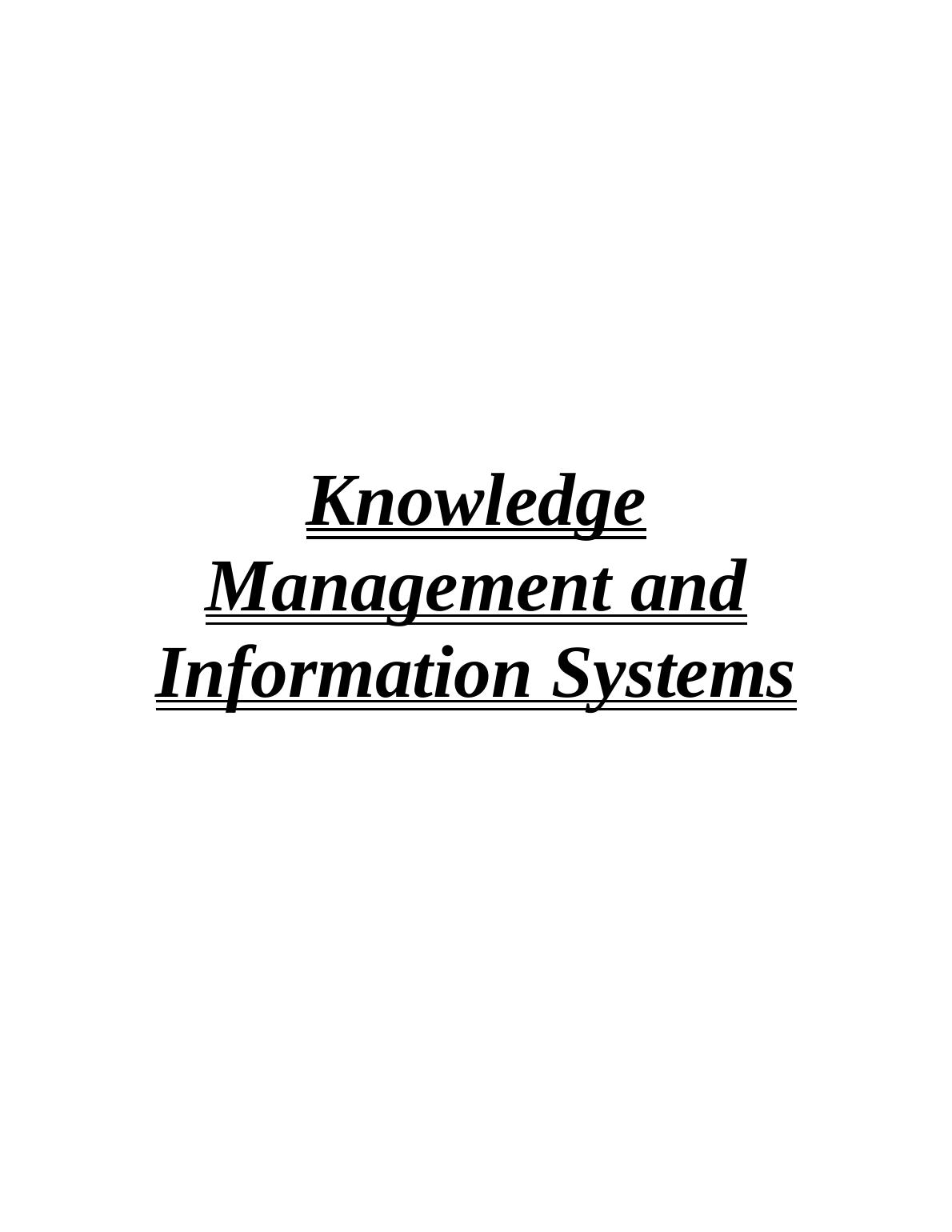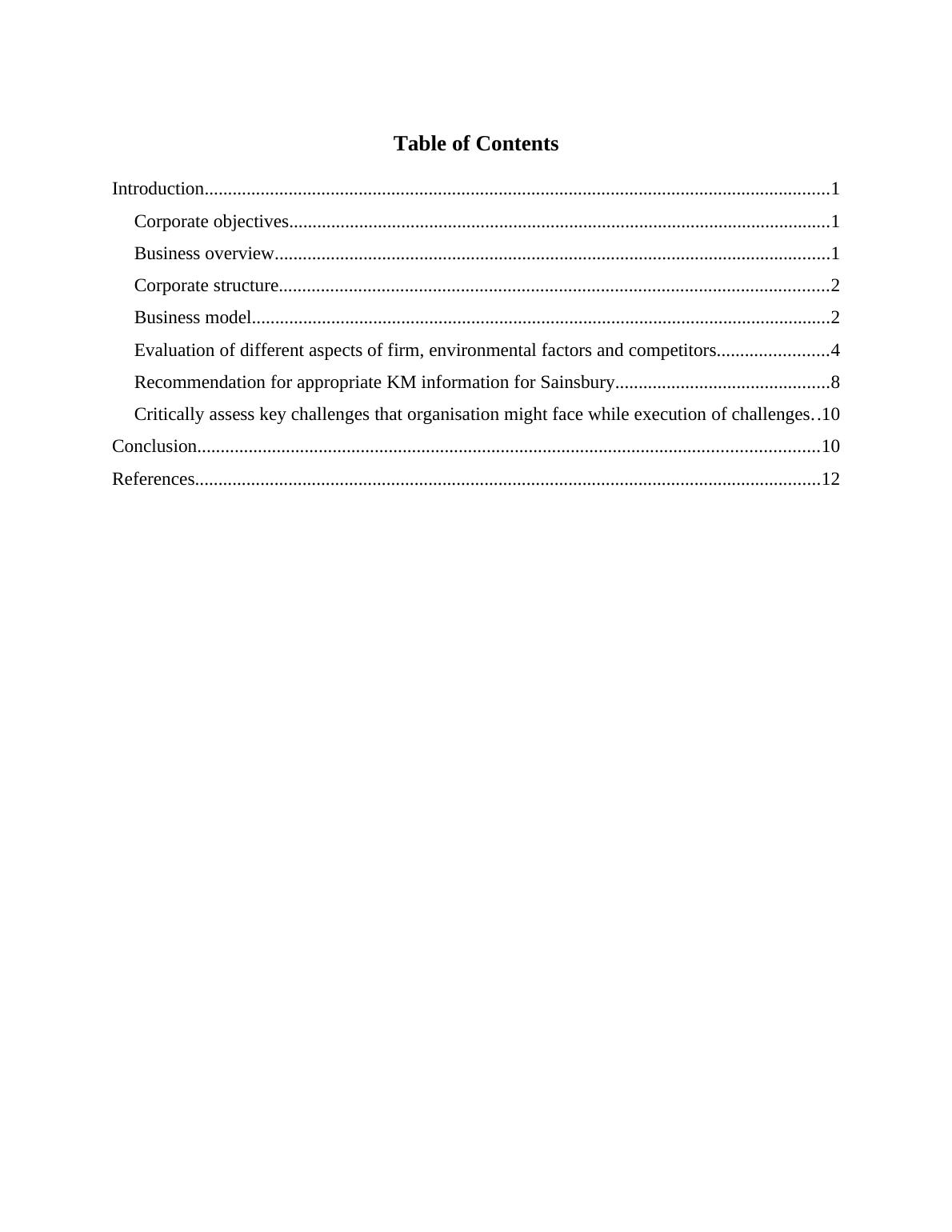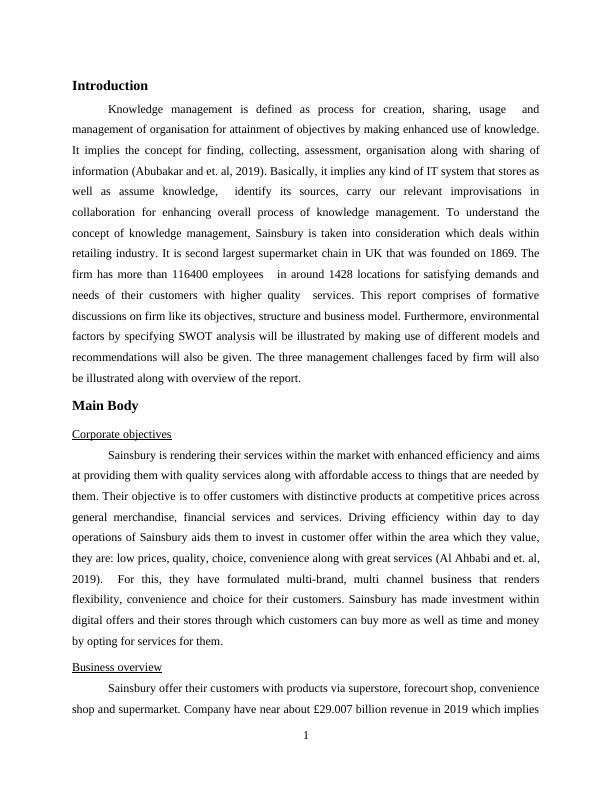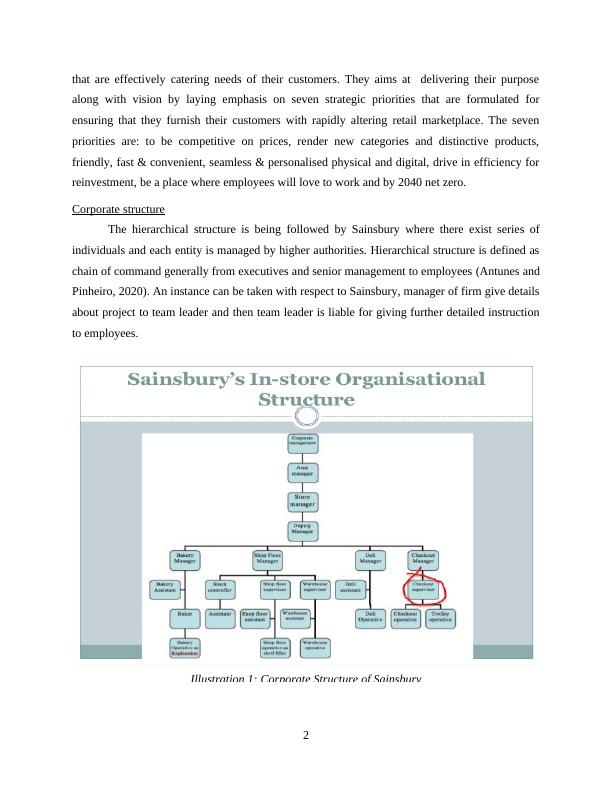Knowledge Management and Information Systems
16 Pages5275 Words98 Views
Added on 2023-01-09
About This Document
This study material provides an in-depth understanding of knowledge management and information systems. It explores the concept of knowledge management and its application in organizations, with a focus on Sainsbury, a leading supermarket chain in the UK. The material covers corporate objectives, business overview, corporate structure, and more. It also discusses the evaluation of different aspects of the firm, environmental factors, and competitors.
Knowledge Management and Information Systems
Added on 2023-01-09
ShareRelated Documents
End of preview
Want to access all the pages? Upload your documents or become a member.
Knowledge Management and Information Systems
|14
|4305
|47
Knowledge Management and Information Systems
|16
|4531
|74
Business Functions and Interrelation: Sainsbury's, Morrisons, Tesco plc.
|2
|2525
|336
Dynamic Perspective on Sustainable Business Strategies
|13
|4496
|38
Knowledge Management Information System for Tesco Plc
|17
|4371
|93
Knowledge Management And Information Systems
|16
|4568
|80




